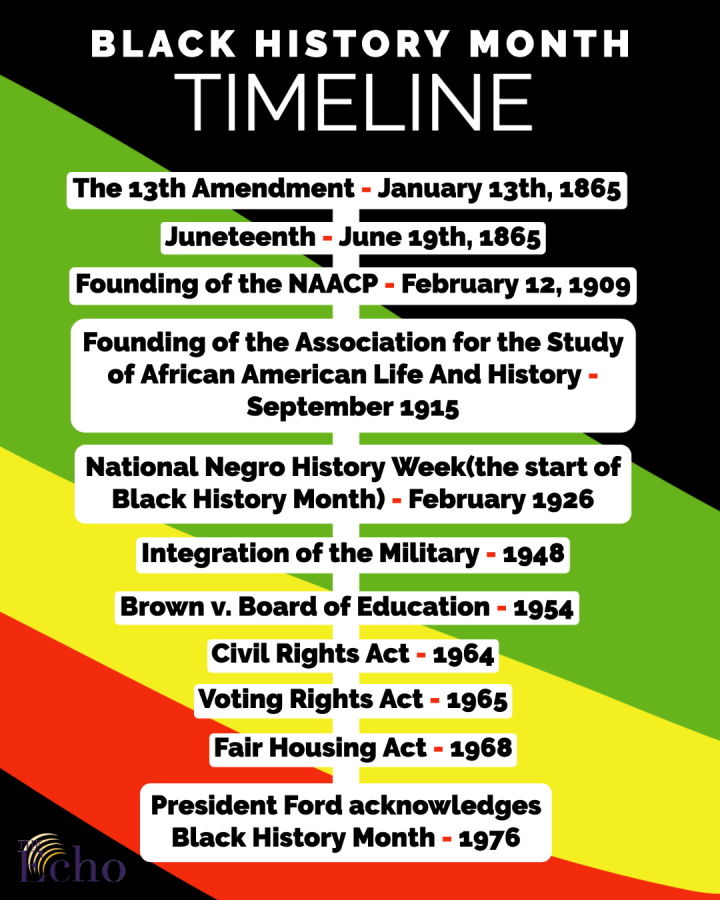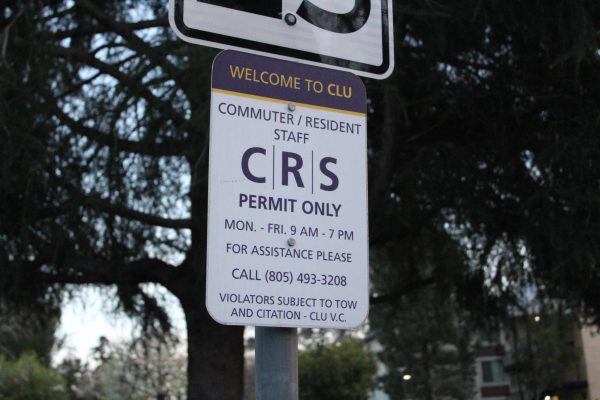Black history is American history
February 15, 2022
Black History is American History. Harriet Tubman is just as American as George Washington was or any of our founding fathers for that matter, and by celebrating Black History Month, we as a society don’t give the history of Black Americans the same importance as we would notable white presidents, pioneers, or inventors. The same can be said about any other marginalized group in America given only a month, week, or day to celebrate.
According to an article by History, in 1926 the organization known today as the Association for the Study of African American Life and History sponsored a week in February that promoted and celebrated Black History known at the time as “National Negro Week.”As time went on, it became embraced and accepted by mayors across the country and eventually grew into a month of celebration across college campuses in the 1960’s.
Finally, in 1976, United States President Gerald Ford became the first President in history to acknowledge it. President Ronald Reagan later extended it to a month, and every American president to come after him has designated the month of February, as Black History Month, a month used to educate and spread awareness and celebrate the achievements of notable Black Americans throughout history.
While Black History Month has helped spread awareness on the history and achievements of Black Americans, there lies an issue with using only one month out of the year to acknowledge and celebrate these notable Americans. It sidelines the achievements and contributions made by Black Americans rather than integrating their stories within the American mythos.
The history of the United States is a history of genocide, injustice, and slavery, and the ugly reality of our country’s history isn’t accepted unanimously. The damage done to marginalized groups in our country hasn’t been fully mended, and dismissal and ignorance, along with systemic issues have kept these groups oppressed.
The lack of attention given to Black History in America is indicative to how our society still views and treats marginalized groups and individuals. If we look at the current discourse surrounding Black Lives Matter or critical race theory, we see a lot of pushback from white Americans who believe racism is a thing of the past.
Director of Ethnic and Race Studies and Assistant Dean for Equity, Inclusion, and Engagement Dr. Lorena Munoz spoke on the impact of history in elementary schools, and how it connects us to our nation or country and creates a sense of “ belonging to the nation.”
“I’m always baffled by the way in which we think about what history is. When you’re in K-12 and you go through this lesson, what is centered is what is called American History and United States History. And that’s supposed to be our way to engage, to nation building, to belonging to the nation in a way that we are all part of this making of history” Munoz said.
It is difficult to look at United States history through a critical lens and be proud of our nation and feel a sense of belonging. Our government has a long standing history of cruelty towards marginalized groups and this history contradicts American Exceptionalism.
“There’s not a monolithic history, there’s all kinds of histories and all these histories should be valued,” Munoz said.
We need to give Black history more attention, because when it is pushed to the sidelines it allows racism to thrive and reinvent the narrative.
In an article for the Georgia State University Research Magazine, Education Professor Chara Bohan and her colleagues analyzed history textbooks after the Civil War that painted the Confederacy in a heroic way. Bohan referred to Terrie Epstein’s book Interpreting National History when addressing the effects of history “whitewashing” on students of color.
“What she found is that white students tend to trust this grand narrative of American exceptionalism that they’re being taught. Meanwhile, Black students tend to be more skeptical of these lessons, because they’ve had family stories passed down to them that counter what is being presented in the classroom” Bohan said in Rewriting History.
Black History Month is important because it brings awareness of the contributions that Black Americans have made to our country.
My advice to white Americans who may not agree with me or have trouble delving into the history of people that don’t look like you would be this; be proud of who you are and where you are from. But it is important to acknowledge those who live in that country with you and what they have been through, because their contributions have value and ignoring that only hinders the progress we make. We need to do better to make sure it’s not brushed aside or reinvented, otherwise we end up isolating these individuals.
The notion of divisiveness based on race or race issues only grows bigger if we don’t actually address it, we absolutely have a racist past that has affected these groups in the long term and the only way we move forward is by addressing and confronting it. That means seeking out knowledge from others, spreading awareness and doing our part to be an ally.
“We have to own our past because we keep repeating it. If we don’t own it and critique it and we engage with it critically, it’s beautiful because then we find spaces of possibility,” Munoz said.












